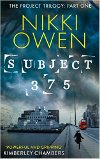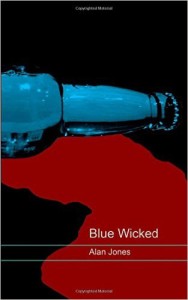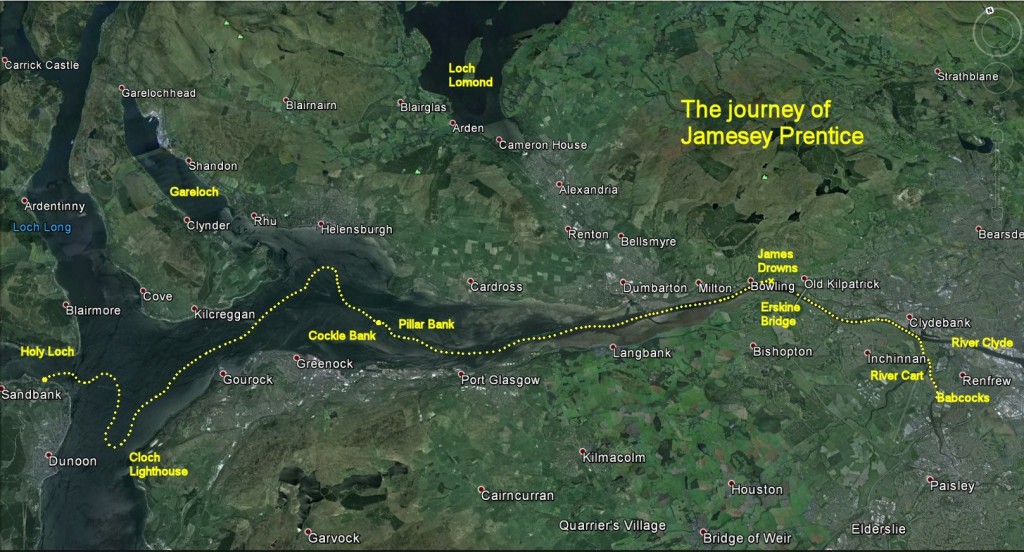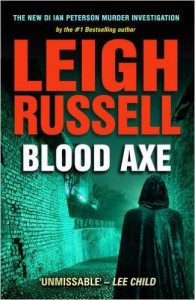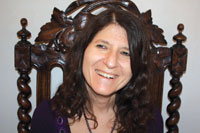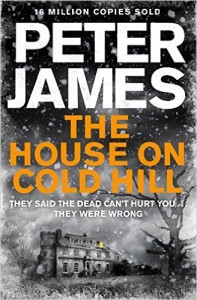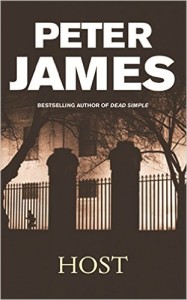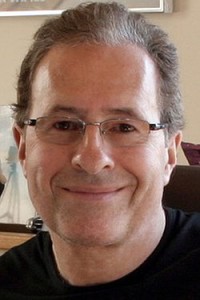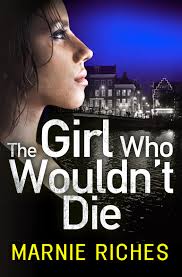 Today I am delighted to be able to welcome Marnie Riches to Grab This Book. I loved the first two books in The Girl Who series and have been dying for the chance to ask Marnie a few questions to get some insights into how these great stories came together.
Today I am delighted to be able to welcome Marnie Riches to Grab This Book. I loved the first two books in The Girl Who series and have been dying for the chance to ask Marnie a few questions to get some insights into how these great stories came together.
First, could I ask you to introduce us to George?
Who is The Girl Who?
Georgina McKenzie – George, for short – is a South East London girl who hails from a very tough council estate in an impoverished, crime-ridden part of the city. Trapped between the tyranny of urban gangs and an unloving, disloyal mother, George uses her intellect to escape a future as a petty criminal. She learns her way to Cambridge University, where, in the course of the series, she blossoms from a social politics undergraduate into a fully-fledged criminologist. Her weaknesses are crisps, an often abrasive attitude and loving the wrong men. Her strengths include a keen analytical mind that can piece together the most perplexing of puzzles, razor-sharp instincts that cut through the densest of bullshit and a very low tolerance threshold for bullies.
How do you describe The Girl Who books to prospective readers?
The Girl Who books are fast-paced, gritty international crime thrillers that examine the dark side of sexuality and expose the shocking fallout from trans-national trafficking. If you’re looking for gentle, quiet reads, this series is not for you. The language is sometimes strong and the body counts are high – reflecting what goes on in Europe’s criminal underworld. All three books start with the hunt for a brutal multiple murderer but twist and turn into something else. The stories don’t shy away from tackling tricky subjects like racial intolerance, drug misuse, pornography or child abuse. In many ways, they are reminiscent of Scandi-noir blockbusters by Nesbo and Stieg Larsson, but with a strong flavour of the quirky serial-killer brutality and intellectual flourishes that you find in Thomas Harris’ The Silence of the Lambs – principally because these three authors represent my main influences in the genre, and George is an academic. Police procedural balance is supplied by George’s partner, Amsterdam’s Chief Inspector Paul van den Bergen, who is a middle-aged misanthrope, suffering from crippling health anxiety. The series is very definitely character led, and readers tell me that they enjoy the quirky dynamic between George and Van den Bergen.
You recently won a Dead Good Readers award for The Most Exotic Location – why did you choose to have Amsterdam feature so heavily in your books?
My degree was in German and Dutch, so I had to spend a year living abroad as part of my studies. Despite having grand intentions of spending that year out in Aruba in the Dutch Antilles, I ended up living, studying and teaching in Utrecht, in the Netherlands. It’s a great city but small for a big-city-dweller like me. I always loved my visits to Amsterdam, so when I considered where to set my novels, Amsterdam was the obvious choice. It’s extremely beautiful, historic and sleazy as hell in parts. The world-famous red light district is one of the most fun places to visit – I’ve had many a misspent weekend there! Every red-lit booth and coffee shop seems to inspire a story in me…
Over the first two books George has a couple of men in her life and she seems to hold power over them both – she appears to be the Alpha. Does George need to be in control of this aspect of her life or does she just enthral the men she attracts?
It’s funny you should say that. It’s true that George doesn’t do demure at all. She’s sexually confident and, unless they are intimidated and turned off by a woman who knows her own mind, men become deeply attracted to her. She’s clever and vivacious, so why wouldn’t they? But she’s emotionally honest too. I think, for all she’s assertive and confident, George is actually deeply vulnerable in love – not really Alpha at all. She falls hard for her men and only gives consideration to protecting her heart when it’s too late. That’s the point at which the anger and righteous indignation start to pour out of her at speed and at volume! It’s a defence tactic. So, I don’t think George seeks control in her love life at all. I think she reels from one heartbreak situation to the next because deep down, she’s passionate, headstrong and soft as hell.
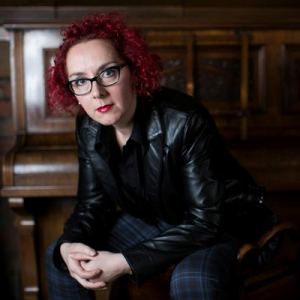
How much of Marnie comes out in George? Can you have her do and say things you would like to do yourself?
Absolutely! George does and says all the things I’d like to do and say but can’t. At 20, as she is in The Girl Who Wouldn’t Die, she has none of the responsibilities and problems with stiff joints that I have as a middle-aged woman! It’s true that some of George’s experiences are mine, however. I also grew up on a rough estate. My mother was a single parent and we struggled in impoverished circumstances. I also learned my way out of the ghetto and went to Cambridge. I am also an opinionated gobshite, but then, there’s a part of me in Van den Bergen too. I’ll leave it for the reader to decide how much is fiction and how much is fact!
Your books can be quite graphic in their depictions of violence, as a reader I like the edge that this gives the story. Did you ever worry about excluding potential readers by giving the books a ‘darker’ tone?
The films and TV series that I enjoy contain graphic violence. I’m a big Tarantino fan. I adored The Wire and Breaking Bad. In many ways, my series is the literary equivalent of those small and big screen phenomena. Fast-paced, vivid plot. Big characters. Racially diverse cast. Big crime. Lots of blood. Similarly, my series contains some humour too, to lighten those grim moments, and the violence always has its place in adding depth to our understanding of the criminal perpetrators’ psyches. So, given my love of Scandi-noir fiction and that gold standard of crime novels – The Silence of the Lambs – I was never going to shy away from incorporating violence into my writing. We have far more gory stories to tell in the real world. The news is overflowing with war, genocide and murder, after all. And as a bit of a softy, violence serves as a form of escapism for me.
No doubt, the body count does exclude a minority of readers, but The Girl Who Wouldn’t Die got to #69 in Amazon’s kindle top 100 and won an award. The Girl Who Broke the Rules is riding high in the rankings only weeks after release and reviews are outstanding. So, I’m not entirely sure the series suffers as a result of my literary bloodshed!
George has encountered several killers through her research and also during the adventures she has experienced. I always like to ask this: Why do readers love serial killer stories given how horrific the concept is in reality?
Serial killers form an intrinsic part of our collective oral history, like childhood tales of the bogeyman or urban myths. Every grown-up has heard of the Moors Murderers, Fred and Rose West, The Yorkshire Ripper… They’re gruesome anti-legends. Serial killers are so rare, that they always make headlines, and we read their stories with macabre fascination, precisely because they are such an anomaly in our otherwise ordered, safe and fairly predictable lives. Death is inevitable, but premature death at the hand of a violent killer is a primal fear, statistically founded on very little, but which we nevertheless experience with perverse relish and vicariously through the suffering of a few unfortunate individuals who do fall victim to society’s worst predators. Serial killers will always be fascinating.
Who do you enjoy reading (and does their work in any way shape your own writing style)?
I enjoy reading my fellow crime authors’ work, although with such a tight writing schedule, I struggle to make time for a concerted and sustained reading effort at the moment. I read out of genre too. Children’s, literary fiction, contemporary women’s, historical. Over the last year, I’ve read everything by Joshua Ferris, one or two by Lionel Shriver, one by Matt Haig, one by Tom Rob Smith, a Gill Paul, a C.L. Taylor, an Ava Marsh, Angela Marsons’ first, half of an Elizabeth Haynes, a chapter or two of one of Simon Toyne’s, half an Eva Dolan. I tend to read the books of people who are signed to my literary agency or people whom I know. None of it particularly influences me. I’ve had my own voice since day one and have a backlog of story ideas! I’ve been writing seriously for ten years, after all and was published as a children’s author before TheGirlWho series burst onto the crime scene!
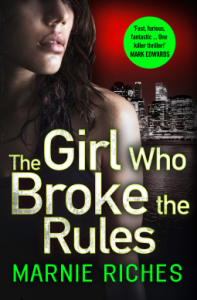 Are you a meticulous plotter, do you sit down and prepare exactly how the story will unfold before you start to write?
Are you a meticulous plotter, do you sit down and prepare exactly how the story will unfold before you start to write?
I work to a two-six page synopsis that I write and agree with my agent in advance of embarking on the real graft. I’m fairly fastidious. I always replot my novels once my first drafts are finished, to ensure my high points and turning points are all in the correct places. Because I write in distinct scenes, it’s fairly easy to move things around, if necessary. I’m not one of those authors whose plot plans are longer than the actual book, but I’m not a pantser either. Nesbo is very tight on plotting and I always see Headhunters as a shining example of how to get it spot on.
If you had one chance to change the ending to ANY book what would you like to alter? My personal choice would be to undo a ‘significant’ event from the end of Agatha Christie’s Curtain.
I read Philip Pulman’s His Dark Materials and enjoyed it immensely. I thought the last page, after hundreds of pages of written joy, however, was a let-down. I can’t think how I might have changed it, but I remember thinking I’d have liked him to finish an otherwise utterly perfect trilogy in a more satisfying manner. I think even the very best authors are often not especially good at ending novels. It’s a subtle art.
Finally, can you give us any clues as to what we can hope to see in your next book?
Ah, I’ve just handed The Girl Who Walked in the Shadows in, so I know exactly what kind of a twisty pulse-pounder is in store for you. In the midst of an Arctic freeze, George – now a fully qualified criminologist – must help fathom the mystery behind a brutal killer called Jack Frost and the ongoing fallout from one of Van Den Bergen’s stone cold cases… The theme of trafficking continues in this third instalment, and some of our favourite characters – goodies and baddies – put in an appearance. It’s a tale of loss, longing and revenge. As ever, there are murders to be solved, but this story is so much more than initial appearances suggest!
The Girl Who Wouldn’t Die and The Girl Who Broke The Rules are published by Maze/HarperCollins.
Marnie is on Twitter: @Marnie_Riches
You can purchase The Girl Who Wouldn’t Die here: http://www.amazon.co.uk/gp/product/B00U1K18VY?keywords=the%20girl%20who%20wouldn’t%20die&qid=1444944722&ref_=sr_1_1&s=books&sr=1-1
and
The Girl Who Broke The Rules here: http://www.amazon.co.uk/Girl-Who-Broke-Rules-ebook/dp/B00U5NU62E/ref=asap_bc?ie=UTF8
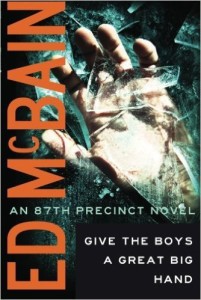 I was in my teens when I picked up my first 87th Precinct novel by Ed McBain. Sufficient water has run under the bridge since then to refloat the Titanic so I can’t say with any certainty which one it was – possibly ‘Give the Boys a Great Big Hand’ – but I know I was immediately hooked.
I was in my teens when I picked up my first 87th Precinct novel by Ed McBain. Sufficient water has run under the bridge since then to refloat the Titanic so I can’t say with any certainty which one it was – possibly ‘Give the Boys a Great Big Hand’ – but I know I was immediately hooked.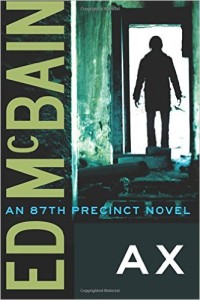 And his city. Isola. It doesn’t actually exist but boy, does it step off the page along with the bulls in the detective squad. You can hear the roar of the traffic, smell the petrol fumes, hear the grey waters of the Harb lapping on the docks. It’s a cliché to say that the setting is a character in a novel but these books prove there is truth in it. You believe this place is real. And that, my friend, is an achievement. I’ve read some books set in actual cities that don’t seem as real.
And his city. Isola. It doesn’t actually exist but boy, does it step off the page along with the bulls in the detective squad. You can hear the roar of the traffic, smell the petrol fumes, hear the grey waters of the Harb lapping on the docks. It’s a cliché to say that the setting is a character in a novel but these books prove there is truth in it. You believe this place is real. And that, my friend, is an achievement. I’ve read some books set in actual cities that don’t seem as real. Douglas can be found online at: http://www.douglasskelton.com/
Douglas can be found online at: http://www.douglasskelton.com/